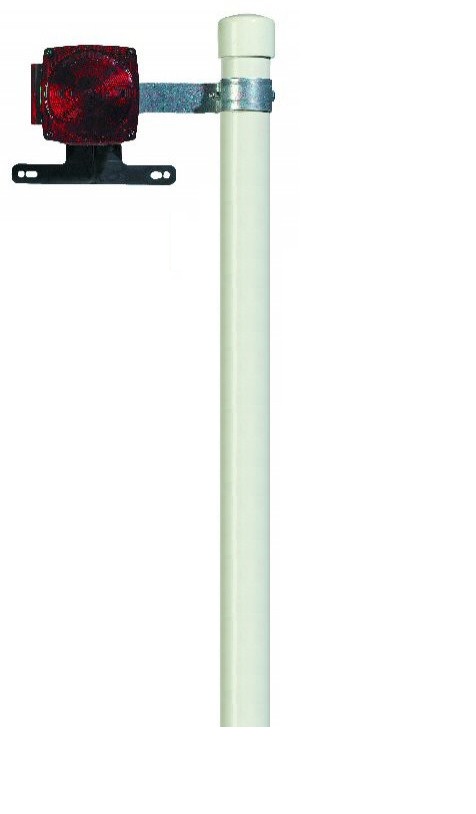Home › Forum › Ask A Member › saving the trailer lights from salt
- This topic has 12 replies, 12 voices, and was last updated 6 years ago by
joesnuffy.
-
AuthorPosts
-
April 5, 2018 at 1:51 am #9554
So I have been updating my website with pictures of interest I took last season (yes, it sometimes takes months for me to get around to my favorite things).
I was putting up a picture of corroded terminals on one of my trailer lights, and thought to myself, is there a better way to discourage my lamps from stop working due to salt corrosion?
I bring my boat all over new england and would say 50% of the time I’m in the ocean. I go through the usual procedure of unplugging my trailer lights when pulling up to the ramp so they have a few minutes to cool off, and rinsing down the boat, motor, and trailer when I get home after the trip.
But I can say that even after installing brand new lamps (which usually happens 3-4 times a season), it takes just 1 exposure to salt to start seeing the green stuff on the lamp terminals, and generally after 3-4 exposures the lamps don’t work without wiggling/unplugging on the terminals due to the corrosion build up.
Would it make sense to coat it all down with gasket sealing compound from OMC and or grease? Again – not a solve it all solution but to at least slow down the process?
April 5, 2018 at 1:58 am #73463Try coating the bulb sockets with dielectric grease.
April 5, 2018 at 3:33 am #73464Check out the Smooth-on web site. They have some semi clear products to seal the lights against water intrusion. . . 😉

 April 5, 2018 at 4:39 am #73465
April 5, 2018 at 4:39 am #73465Living out here on an island surrounded by salt water has given me all kinds of entertainment keeping sealed or submersible incandescent trailer lights working after being dipped in the chuck. No matter how much I’ve tried to protect them, the salt always won the battle, even with ‘the ‘submersible’ ones which are open to the atmosphere (and the ocean) on the bottom.
When submersible LED trailer lights hit the market, it was like manna from heaven! I threw the old bulb type ones as far as I could and replaced the lights on all of my trailers with submersible LED’s. Problem solved! No more wasting time replacing bulbs, wiggling wires, or maintaining them. A true plug n play operation, just hook up the trailer, plug in the lights, and go!
LED trailer lights come on sale and are very affordable for the long run. Do yourself a favor and replace your old incandescent ones. You wont regret it.
April 5, 2018 at 9:49 am #73466I have been meaning to try a set of LEDs. Have NOT done it, yet. I do not have high hopes, myself. Although they seem like a great idea, LEDs in other areas of the marine business are no more reliable than bulbs by Edison. "Underwater lights," in particular, are a pet peeve with me. These are big with the rich people, right now. Almost everything on the market now is LED with these. Some of them, made for expensive yachts, cost as much as $5000.00 apiece. You could probably drive a tank over them; yet, although usually only about three feet underwater, on average, the LED segments fail constantly. It is insane. We also have some navigation side lights out there that are LEDs. Some of them are also quite expensive. We are currently waiting for replacements for two Lopolight-brand units that list for $250 apiece and almost caught the boats on fire, they got so hot, when they failed. So we will see, on relatively cheapo trailer parts….
My best luck with lights (in salt water all the time) has been to buy the cheap ones that are NOT open on the bottom. When they are new, I take them apart and seal everything with clear silicone, including the screws and where the wires enter the back of the unit. They have lasted me a few years or more, that way, launching almost every weekend in the summer.
Long live American manufacturing!
April 5, 2018 at 11:40 am #73469optronics,waterproof,LED, seem to last
April 5, 2018 at 2:25 pm #73472When I lived on the coast several years ago I would solder small short wires to the actual bulbs then solder the ends of them to the wires to the lights. Not a perfect fix but it would usually get me through that season dipping the trailer in and out of salt water to launch boat. That was way before led lights. Its a neat little trick even for bulbs holders on boats where their not in the best shape and a person might have more time than money. Hope that helps,
Joe
ps I also carried 2 Army flashlights behind my truck seat in case I didn’t have running lights for any reason. An army flashlight has lenses in the bottom I kept the red lens in them and just clipped them on whichever side of trailer I needed a running light until I could re-solder a bulb.
https://www.ebay.com/itm/Lot-of-2-NSN-G … wm&vxp=mtr
April 5, 2018 at 3:11 pm #73475April 7, 2018 at 8:29 pm #73574I always grease the bulbs which helps. Most of the trailer lights I’ve had are not made of good quality materials and can’t be expected to last in salt water. I’m surprised to hear of problems with LED trailer lights.
Anyone have specific brands/models to recommend?
April 8, 2018 at 1:10 am #73580I do what tubs just said. Problem gone.
-
AuthorPosts
- You must be logged in to reply to this topic.


